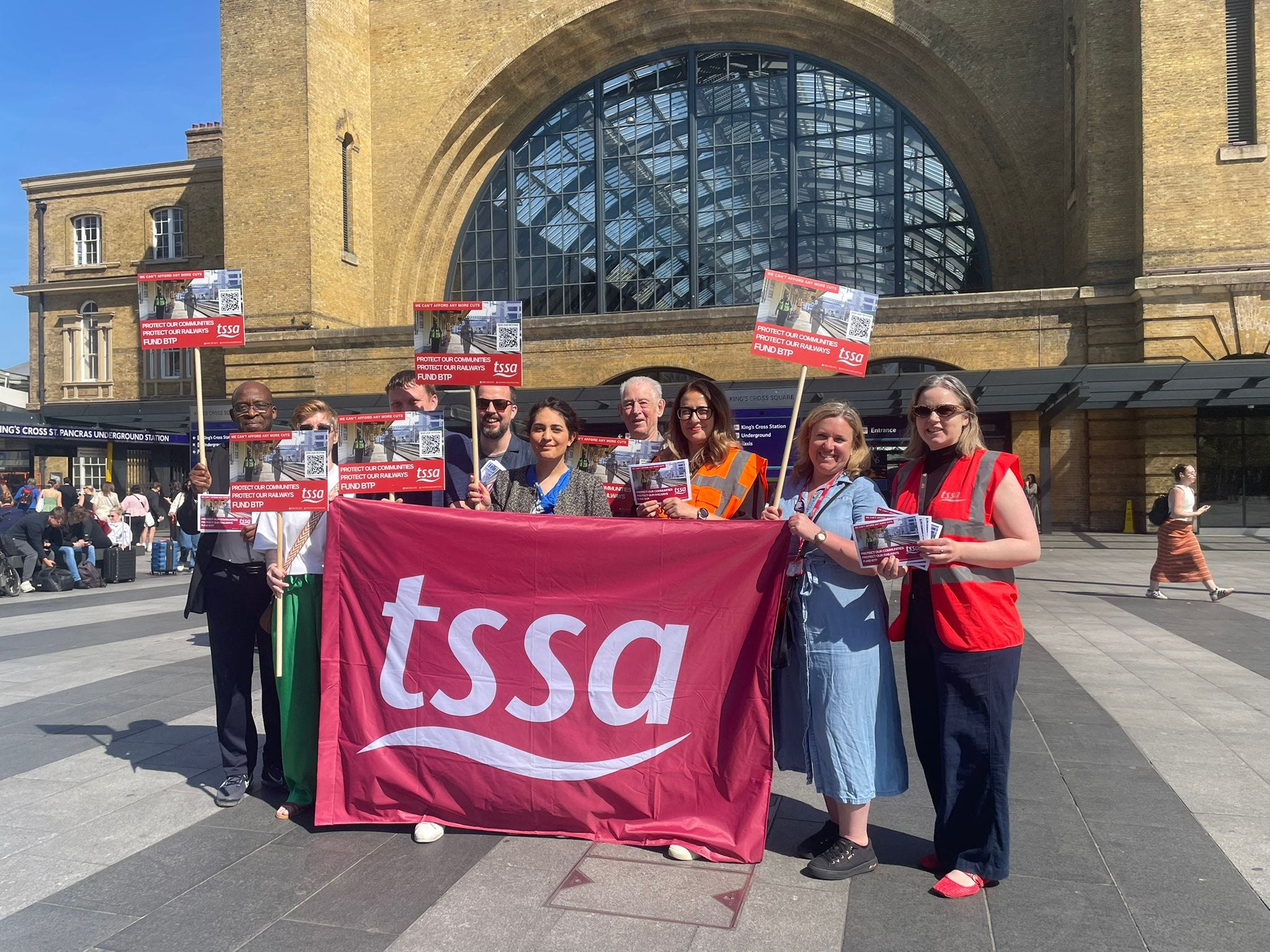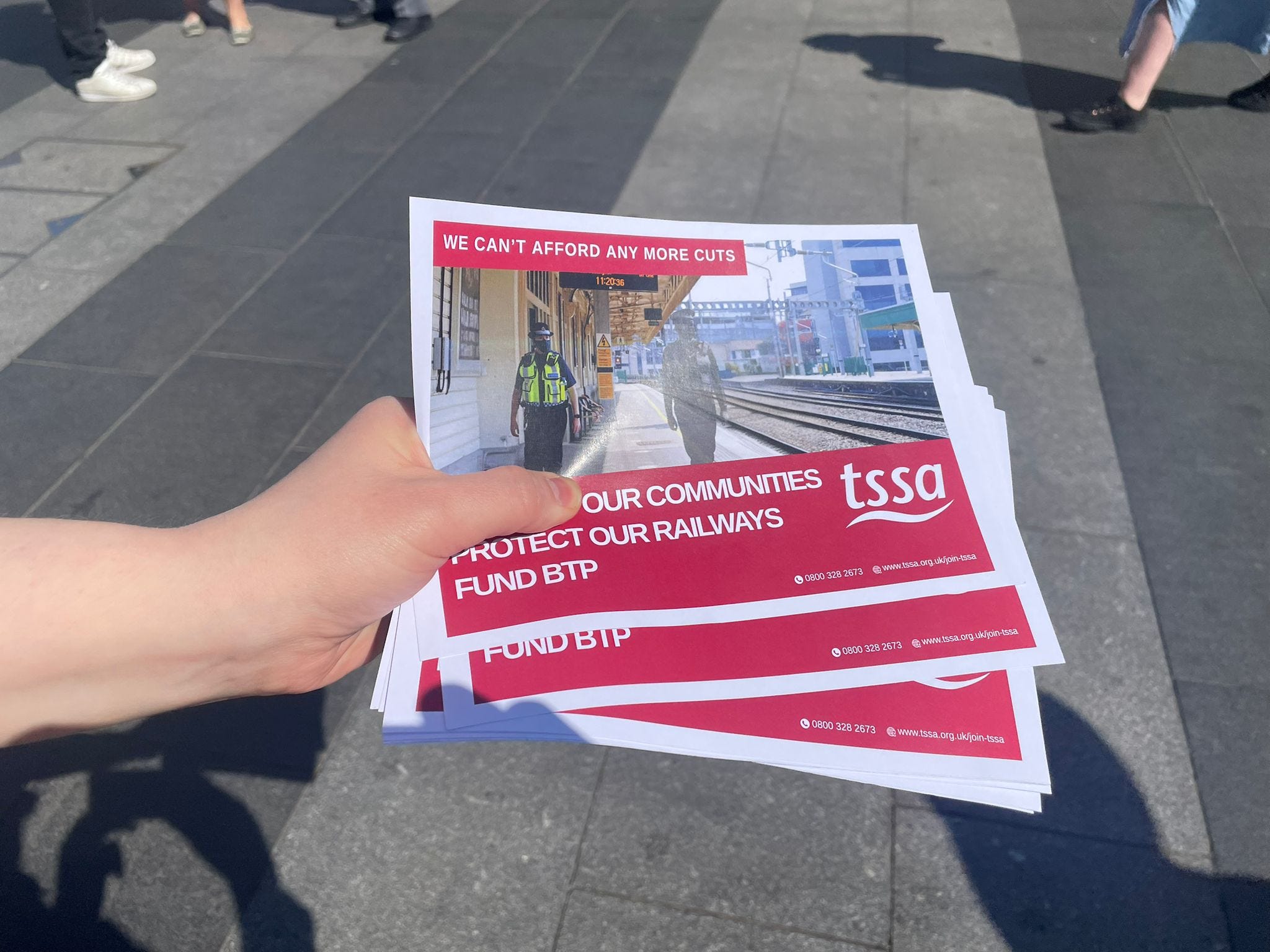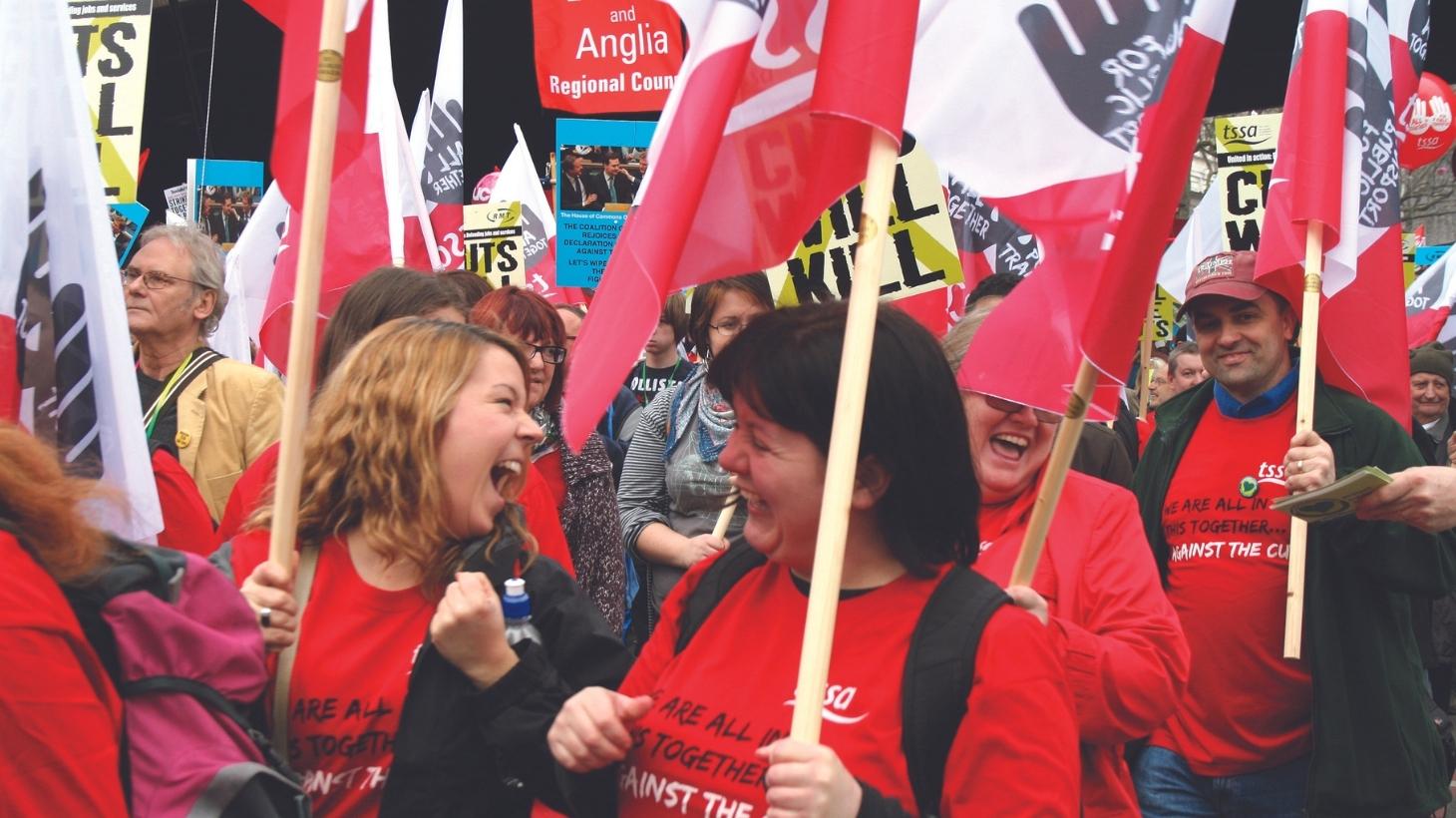NEWS.CATEGORY: Industrial
TSSA opens campaign to protect British Transport Police

TSSA has begun a campaign calling on the Westminster government to halt a series of damaging cuts at BTP which would potentially lead to job losses and a drastic reduction in police presence at railway stations.
Activists gathered at King’s Cross station in central London to demand a fair funding deal for BTP and received strong support from passengers and the public.
TSSA is the only recognised trade union within BTP and represents Police staff all grades including PCSOs. The union is warning that, for instance, the plans would leave no Transport Police presence between Preston and stations in Scotland, exposing both the public and railway workers to greater risk.
This comes at a time when assaults on passengers have reached a record high – with close to 1000 such incidents officially recorded in the year 2023-24.
Last year BTP asked the British Transport Police Authority (BTPA) for a funding increase of 9.8%, but was awarded an uplift of less than half of that figure, at 4.6 %. BTP now faces a £8.5m funding budgetary shortfall.
The shortfall means that at least 300 job roles, nearly one in five of the civilian staff, could be made redundant. It will also mean closing BTP station offices. Under these plans there will be no BTP station offices between Preston and Glasgow.
TSSA is calling on the Transport Secretary, Heidi Alexander, to intervene and make sure BTP is fully funded.
Commenting, TSSA General Secretary, Maryam Eslamdoust said: “We are pleased to get this campaign up and running because the cuts being proposed at BTP threaten not only the safety of our members but everyone who sets foot in a rail station or on a train.
“Above all else our union demands safety on the railways every day of the year. These plans do the opposite, and we really need the Secretary of State to engage and understand the impact of what it being proposed.
“Not only will this lead to job losses, but as a consequence leave significant gaps in BTP coverage, particularly in the north of England. This lack of support puts rail workers at greater risk and undermines their ability to perform their duties effectively.”
Currently, 17 BTP stations are planned to close. Under these plans there will be no BTP station offices between Preston and Glasgow. The BTP 2024/25 budget is £395 million.
The planned job losses and station closures will have several impacts on the average passenger:
· Safety Concerns: Reduced police presence could lead to increased crime rates and longer response times. Particularly concerning in relation to violence against women and girls.
· Operational Delays: Longer travel times for officers to incident scenes could increase train delays.
· Decreased passenger confidence: Fewer passengers feeling safe on the public transport could see them avoid public transport and revert to driving, impacting the government’s green targets.
· Pressure on police force: With less BTP capacity, the police will be called out to support, adding to their workload and the time taken to respond since they are not specially trained in transport.
Recent BTP Transport Crime Statistics
· Overall Crime: BTP recorded 19% more crime in 2023/24 than 2022/23.
Statistics on Violence Against Women and Girls in the Railway (2023/24)
According to the British Transport Police Authority's 2024 annual report, there was a significant increase in violent crimes against women and girls on the transport network.
The rise in reported incidents is attributed to more victims coming forward to report crimes, rather than an actual increase in the number of crimes committed.
Key Statistics on Violence Against Transport Workers (2024)
According to the latest report from the TSSA violence against transport workers has seen a disturbing increase. Here are some key findings:
· Overall Incidents: Over half of respondents reported experiencing some form of violence—either physical or verbal—within the past year.
· Verbal Threats and Abuse: 95% of respondents reported receiving verbal threats or abuse.
· Incidents Involving Weapons: 40% of respondents reported incidents involving weapons.
· Minor Injuries: 40% of respondents reported incidents resulting in minor injuries, such as cuts, bruises, or sprains.
· Racial Harassment: 43% of respondents reported racial harassment.
· Sexual Harassment: 37% of respondents reported sexual harassment, highlighting the disproportionate risks faced by certain demographics, particularly women and LGBTQ+ workers.


